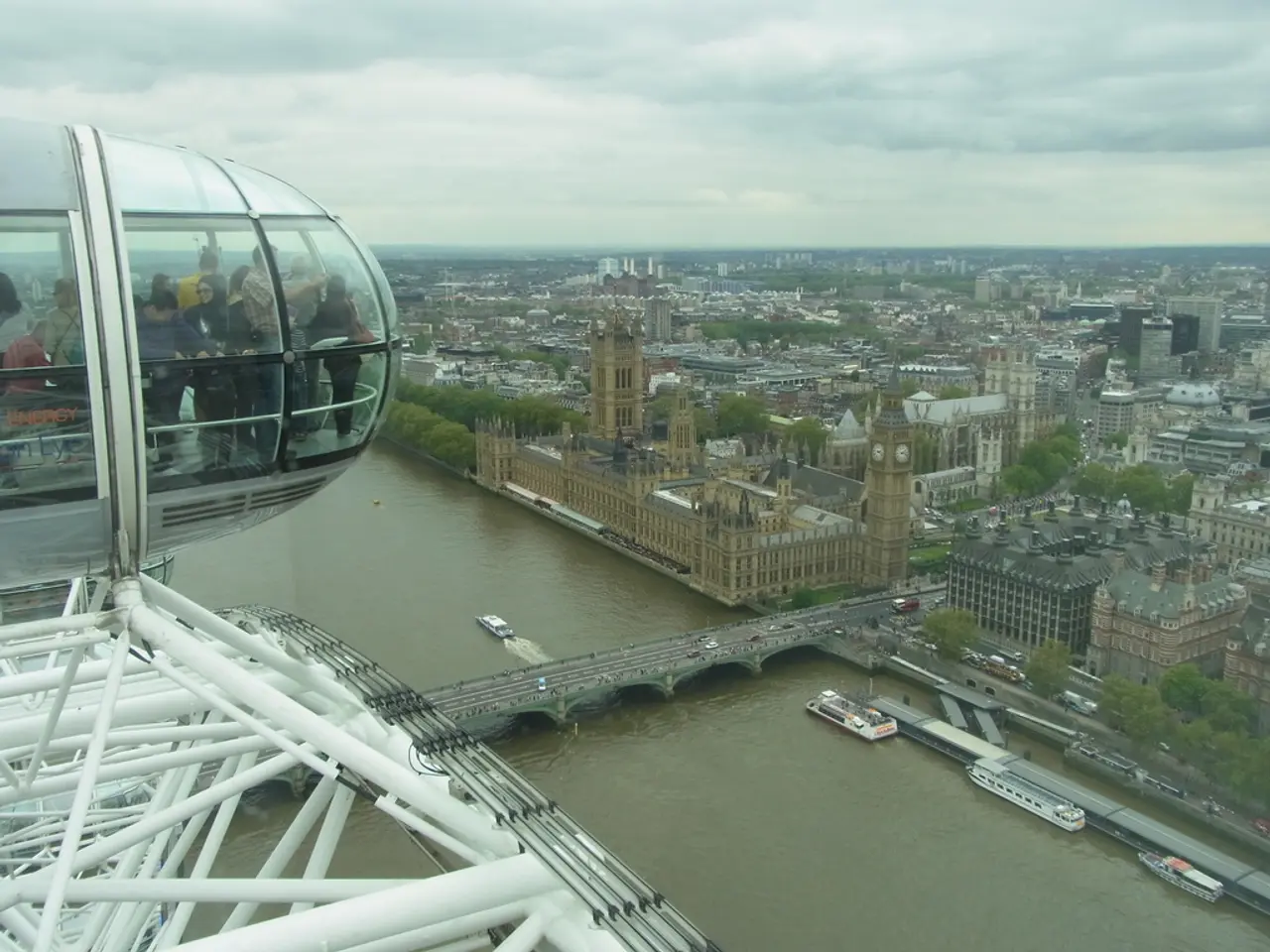Increase in property values for Canary Wharf offices following a period of decline
The Canary Wharf Group (CWG) is experiencing a significant revival in its property market, with leasing volumes already surpassing 450,000 sq ft in 2025, putting them on track to exceed last year's total of 700,000 sq ft. This promising trajectory indicates that 2025 could be the best leasing year in over a decade for the Group.
One of the key drivers behind this recovery is the strong rental growth in prime office assets. In 2025, prime office rents in Canary Wharf have seen a 6% increase, reflecting corporations' emphasis on sustainable, premium-grade office environments, despite some vacancy challenges.
The area's regeneration strategies, incorporating residential, cultural, and tech-driven developments, are also playing a crucial role. These initiatives enhance future growth prospects by attracting diverse economic activities and talent. Additionally, flexible and ESG-compliant office layouts that accommodate hybrid working models are increasingly favoured, underpinning demand.
Government policy changes also influence the market. While recent UK immigration reforms may impact some sectors due to tighter skilled worker rules, a new investor visa program focused on key growth industries could channel significant capital into Canary Wharf and London's prime office market if appropriately implemented.
Refinancing pressures have eased recently, with an attendant rise in office values in Canary Wharf, signalling improving investor confidence. This, combined with steady residential performance in the broader London real estate market, supports a more robust economic outlook for the district's real estate sector.
Notable leasing deals this year include Visa taking over approximately 15,800 square meters of office space in One Canada Square, as well as two major deals with Banco Bilbao Vizcaya Argentaria and SmartestEnergy, totalling 250,000 sq ft.
Moreover, established companies such as Morgan Stanley, Citigroup, and Brookfield Asset Management have continued to lease office space in Canary Wharf, while others, including Barclays, Citi, Fitch, JP Morgan, Revolut, and UCL, have recommitted to space at Canary Wharf.
The Canary Wharf Group's portfolio, which includes these leased offices, is showing a recovery trend, with the value of a £2bn portfolio, representing about half of the Group's office holdings, increasing by 0.6 percent between March and June.
In conclusion, Canary Wharf's property market recovery is driven by a mix of premium office demand growth, regeneration-focused revitalization, government immigration and investment policies, and investor confidence improving due to easing refinancing challenges. This promising situation bodes well for the future of Canary Wharf's real estate sector.
[1] Source: The Financial Times [2] Source: Property Week [4] Source: Property Investor Today
- The surge in leasing volumes in Canary Wharf's property market, with the potential to surpass 700,000 sq ft in 2025, demonstrates the revival of the banking industry within the district, as corporations like Visa and Banco Bilbao Vizcaya Argentaria have shown significant interest in the area's premium office assets.
- The increasing trend towards sustainable, premium-grade office environments and flexible working models in the finance sector has led to a 6% increase in prime office rents in Canary Wharf in 2025, further strengthening the area's real-estate industry.
- The Canary Wharf Group's robust economic outlook for the real estate sector is underpinned not only by the recovery of leasing volumes but also by the attractive combination of government investment policies, regeneration strategies, and improving investor confidence in the banking and finance sector, as illustrated by the continued leasing of office space by established companies such as Morgan Stanley and Brookfield Asset Management.








